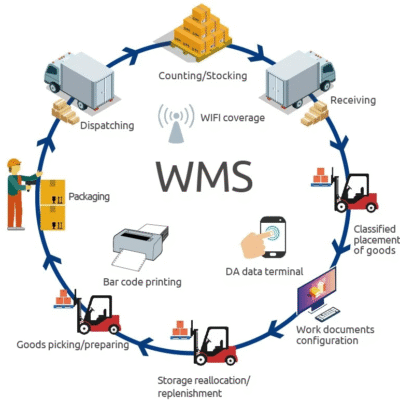In today’s fast-paced business world, AI is at the forefront of driving innovation and improving operations. For businesses in regulated industries, however, the decision to choose between custom AI development and Software as a Service (SaaS) solutions is a critical one. This decision can greatly impact compliance, control, scalability, and long-term success.
Businesses in regulated sectors such as healthcare, finance, and insurance must meet strict compliance standards, manage sensitive data, and maintain transparency. For these businesses, AI solutions must not only be effective but also adhere to various legal frameworks. In this article, we will explore the pros and cons of custom AI development versus SaaS, with a focus on which one is better suited for regulated industries.
Understanding Custom AI Development and SaaS
Before diving into the comparison, it’s essential to understand what custom AI development and SaaS solutions are.
What Is Custom AI Development?
Custom AI development involves creating AI solutions that are specifically tailored to the unique needs and objectives of a business. These solutions are built from the ground up, offering full control over features, design, and functionality. With custom AI, companies can ensure that the system fits seamlessly into their existing operations, workflows, and regulatory requirements.
For example, a custom AI solution for a healthcare company might be designed to process patient data securely and ensure compliance with HIPAA regulations, offering flexibility and adaptability in line with the business’s unique needs.
What Is SaaS (Software as a Service)?
On the other hand, SaaS refers to software solutions that are hosted and managed by third-party providers. These solutions are typically subscription-based and can be accessed via the internet. SaaS platforms are often more cost-effective and quicker to deploy, but they may offer limited customization and control.
SaaS AI solutions can be a great option for businesses looking for out-of-the-box solutions that require minimal setup. However, for highly regulated industries, this convenience might come at the cost of flexibility and control over data management and compliance.
Key Differences: Custom AI Development vs SaaS
Now that we have a basic understanding of both approaches, let’s explore the key differences between custom AI development and SaaS solutions, especially for regulated businesses.
1. Compliance and Regulatory Control
For businesses in regulated industries, compliance is a top priority. Custom AI development allows you to design systems specifically tailored to meet the regulatory requirements of your industry. These solutions offer flexibility to ensure adherence to specific compliance standards, whether it’s GDPR, HIPAA, or other region-specific regulations.
- Custom AI: With custom AI, businesses can build solutions that align perfectly with their internal compliance procedures, ensuring that all aspects of data handling, processing, and storage are compliant.
- SaaS: SaaS solutions, while convenient, often come with standardized compliance frameworks that may not fully meet the unique needs of highly regulated industries.
2. Data Control and Security
In regulated industries, maintaining control over sensitive data is paramount. With custom AI development, you have full control over how data is stored, processed, and protected. You can implement state-of-the-art security measures, monitor access, and ensure that your AI systems follow strict internal protocols.
- Custom AI: Offers full data ownership, allowing businesses to implement advanced security measures specific to their needs.
- SaaS: While SaaS providers often implement robust security protocols, businesses may not have the same level of control over the data or the ability to monitor it in real time.
3. Scalability and Flexibility
Custom AI development provides businesses with the scalability and flexibility needed to grow and evolve. As your business expands, your AI solutions can evolve alongside it, offering tailored features and capabilities that align with your changing needs.
- Custom AI: Custom solutions can grow with your business, adding new features and adjusting to changes in regulations or operational requirements.
- SaaS: SaaS solutions may be limited in scalability and customization, and businesses might find themselves restricted to the features and functionalities the provider offers.
4. Cost Considerations
One of the main factors businesses need to consider is cost. Custom AI development is often more expensive upfront, as it involves significant time and resources to build and deploy. However, over time, it can provide better value by offering tailored solutions that maximize efficiency and reduce the need for costly adaptations.
- Custom AI: Requires a higher initial investment, but offers long-term cost-effectiveness and returns.
- SaaS: Generally more affordable upfront, but recurring subscription costs can add up over time, especially if the solution requires additional customization.
5. Speed of Deployment
For businesses that need a solution quickly, SaaS might be the better option. SaaS platforms are ready to use out-of-the-box, and implementation is often much faster compared to custom AI development. However, this speed can come at the cost of flexibility and control.
- Custom AI: Longer development and deployment time, but the solution is perfectly tailored to your business needs.
- SaaS: Fast deployment with minimal setup, but potentially limited in customization and regulatory alignment.
6. Maintenance and Updates
When it comes to custom AI, businesses are responsible for maintaining the system, implementing updates, and ensuring its continued compliance with regulatory changes. This responsibility can be both a benefit and a burden, depending on the resources available to the business.
- Custom AI: Requires in-house teams or contractors for ongoing maintenance and updates.
- SaaS: Maintenance and updates are handled by the provider, so businesses don’t need to worry about keeping the system up to date. However, they might not have control over when or how updates are applied.
Which One is Right for Your Business?
Choosing between custom AI development and SaaS for your business depends on several factors, including your specific industry, the complexity of your requirements, your budget, and your long-term goals.
When to Choose Custom AI Development
- Highly regulated industries: If you’re in a sector such as healthcare, finance, or insurance, and need complete control over data security and compliance, custom AI is likely the better choice.
- Tailored solutions: If your business has unique needs that cannot be fully met by out-of-the-box solutions, custom AI allows you to build something that fits your exact requirements.
- Long-term investments: While custom AI development might be more expensive upfront, it can offer better scalability, security, and long-term cost-effectiveness for your business.
When to Choose SaaS
- Quick implementation: If you need to deploy an AI solution quickly and don’t have the resources to develop a custom one, SaaS is a fast and cost-effective option.
- Smaller businesses: For startups or small businesses that may not have the resources for large-scale custom development, SaaS platforms provide a ready-made solution with minimal overhead.
- Basic functionality: If your business needs a simple, straightforward AI solution with basic functionality, SaaS might be the more practical choice.
Conclusion: Making the Right Choice for Your Business
Choosing between custom AI development and SaaS solutions is not a decision to be taken lightly, especially for regulated industries where compliance and data security are paramount. Both approaches have their advantages and challenges, and the right choice depends on your business’s unique needs, resources, and goals.
- Custom AI offers greater control, flexibility, and compliance but requires a larger upfront investment and longer development time.
- SaaS solutions offer speed, affordability, and ease of implementation, but might lack the deep customization and control needed for highly regulated industries.
Ultimately, the right choice will depend on balancing your need for tailored solutions, compliance, cost, and scalability. By considering the factors outlined in this article, you’ll be in a better position to make an informed decision that aligns with your business’s objectives and long-term success.




